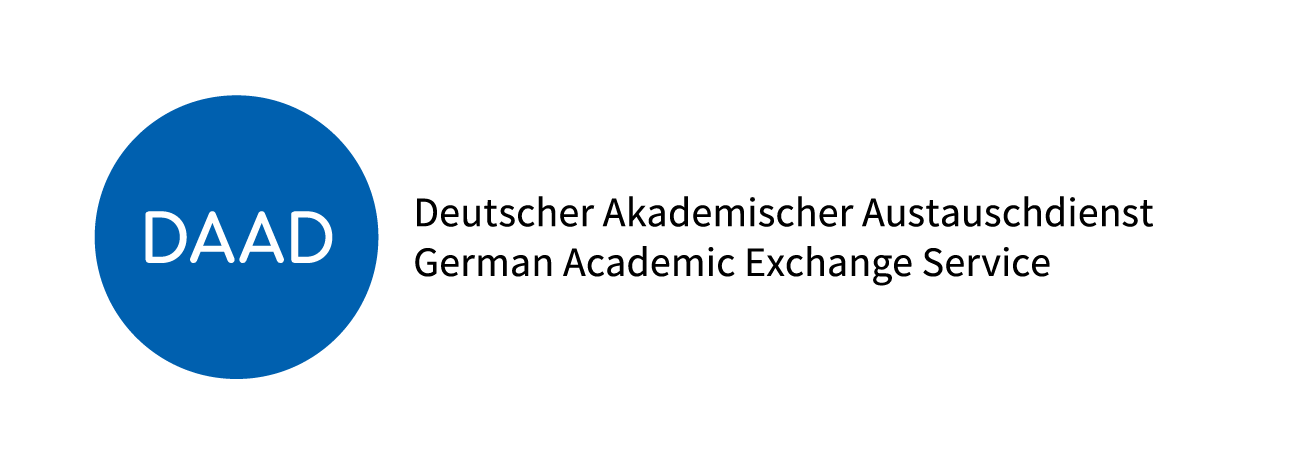
8 Reasons Why Germany is a Welcoming Destination for International Students
Germany's welcoming and inclusive attitude toward diverse international students makes it a great study abroad destination.
When considering study abroad destinations, it’s important to choose somewhere you feel welcome and safe. Luckily, Germany is a very international student-friendly country, both in policy and in practice! Aside from affordable and quality education, international students will benefit from inclusive policies that encourage and support diversity.
Read on to learn about how Germany welcomes students from all backgrounds and abilities.
1. Free tuition for everyone
Germany is one of the few countries in the world that has free university tuition for everyone. Yes, even international students don’t pay tuition fees at the majority of public German universities*! Higher education in Germany is funded by taxpayers so all foreign students simply pay between $100-$400 USD per semester in administrative fees. This fee often gets you a transit pass.
Free tuition makes attending university accessible to people from all backgrounds. Studying abroad can be expensive for many, so Germany’s policies help open doors to higher ed. Although students still need to have sufficient funds to support themselves, there are tons of scholarships available to make studying at a Germany university even more attainable.
*The only exceptions to this rule are universities in the state of Baden-Württemberg and the Technical University of Munich (TUM), which charge international students €1,500 ($1,625 USD) per semester and between €2,000-€6,000 ($2,167-$6,503 USD) per semester, respectively.
2. Pro-international student recruitment

Germany is enthusiastic about welcoming foreign students. Two of the major ways this is facilitated are through numerous scholarship opportunities and a straightforward online application process.
DAAD gives out thousands of dollars worth of scholarships and grants to international students every year. Even with free tuition at most universities, DAAD recognizes that there are other costs associated with studying abroad. Available scholarships cover a variety of things, from research and travel costs to monthly stipends for living expenses.
Another way that German universities remove barriers for international students is through their easy application process. A wide range of universities partner with uni-assist, an application portal with instructions and tips in English. Here, application documents can be uploaded to a central location, taking away a lot of the confusion around applying to an overseas university.
3. Growing diversity
Over the period between 2013-2023, international student enrollment at German universities grew by 52%. Every year, the number of international students continues to increase, with the most popular countries of origin being India, China, Syria, Austria, and Turkey.
As of the 2022/2023 academic year, over 458,000 international students are living and studying in Germany. To foster continued diversity in universities, DAAD offers scholarships specifically for international students from low-income backgrounds and those part of historically underserved groups.
In recent years, Germany has also become a safe haven for around 2 million refugees and asylees. This open-arms policy has increased the country’s diversity as a whole, with over 200,000 people becoming naturalized citizens.
4. International student-friendly policies

Germany has worked hard to implement policies that benefit international students. Some highlights include:
- Expanded working rights: New legislation called the Skilled Immigration Act is being rolled out in 2024 and contains several measures that support international students. In addition to now being able to work up to 20 hours a week, the pathway from studies to full-time work after graduation is being streamlined. It’s getting easier than ever to live and work permanently in Germany!
- Straightforward visa system: Citizens of 12 non-EU countries, including the US, Australia, Canada, Brazil, Japan, and South Korea, do not need to apply for a student visa for Germany. Instead, they’re required to apply for a residence permit within 90 days of arrival. For students who do need a visa, the process is straightforward.
- Free German language classes: Although many Germans know English, speaking German is still extremely important for daily life, especially if you want to get established long-term. To support language learning, most universities offer free German classes to international students.
The work isn’t done though! DAAD continues to campaign for more support and services for international students.
5. Low rates of crime
If you’re wondering if Germany is safe for international students, the answer is a resounding yes. The country ranks 20th on the 2024 Global Peace Index and in 2021, a Federal Ministry of Education survey revealed that 80% of international students reported feeling safe while living and studying in Germany.
Although the country’s rates of violent and petty crime are low, it’s always wise to exercise caution everywhere in the world!
6. Freedom of expression

One of the major tenets of German society is freedom of expression. According to Freedom House, a non-profit promoting democracy and human rights, Germany scores 93 out of 100 for freedom of political rights and civil liberties.
The government’s Federal Anti-Discrimination Agency works to protect racial and ethnic minorities, women, LGBTQI individuals, and people of different religious and political affiliations from discrimination and violence.
Even though the country’s laws support personal expression, at the societal level, Germans are generally open and accepting of people with diverse lifestyles, views, and beliefs.
7. Support for unique student needs
Germany wants students of all abilities to feel at home. Whether you have learning differences, mental health conditions, physical disabilities, or chronic illnesses, there are accommodations available. All universities have a dedicated representative who supports students with disabilities or special education needs. Should you need classroom, testing, or mobility accommodations, German universities strictly observe the country’s constitution which guarantees access without discrimination to higher education for all students – international students included!
All international students have access to quality and affordable healthcare in Germany so getting medication or medical devices you need won’t be on your list of worries.
8. Wide range of dietary options

Traditional German cuisine is meat-based but due to the many diaspora communities and acceptance of vegetarianism and veganism, there are food options for every diet. Berlin alone is home to over 80 vegan restaurants but many other cities have growing plant-based scenes. Despite the country’s love of beer and pretzels, there are also plenty of gluten-free alternatives in both grocery stores and restaurants.
How to study abroad in Germany
Studying abroad in Germany as an international student is easier than you think! Here are the basic steps you need to follow to start your study abroad adventure.
- Find a program that matches your interests and goals. DAAD’s searchable database makes it easy to find programs in English in a range of levels and subjects. You can also look for study abroad programs hosted by third-party providers, here on Go Overseas!
- Gather your documents. You will typically need copies of your passport, degree diplomas, and transcripts to apply. Each university will have specific requirements depending on the program.
- Apply online. Many universities use uni-asist, an online application portal in English that helps you through the process in a straightforward way.
- Determine whether you need a visa. Students from several non-EU countries the US, Australia, and Canada don’t need to apply for student visas before traveling to Germany. The process is quick and efficient if you are from a country that needs a visa.
For a more detailed overview, check out our article on how to study abroad for free in Germany as an international student!
Study abroad in Germany!
The opportunities for international students in Germany are endless, whether you want a short-term cultural exchange or to settle as an expat long-term. Germany is a friendly country that values the contributions of its international students. So, take advantage of all Germany has to offer – you won’t regret it!
Learn more about how to study abroad in Germany:

Funding Opportunities to Study in Germany Through DAAD
The German Academic Exchange Service, known by its acronym DAAD in German, is an organization that offers various scholarships and research grants to study in Germany for all academic levels and fields. If you've ever considered studying in Germany, check out the informational page DAAD and Go Overseas have created together to provide comprehensive overview on studying in Germany.






